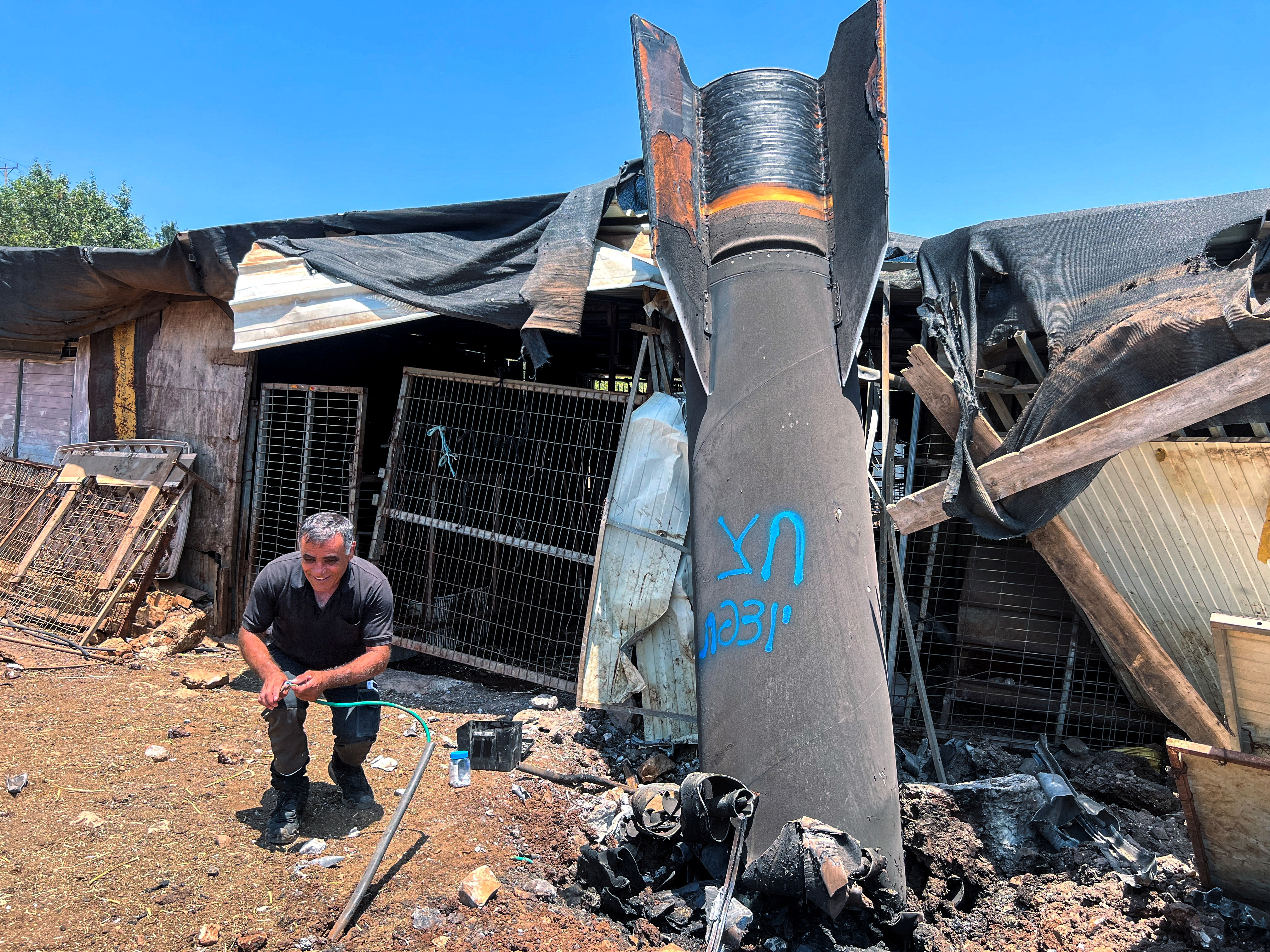A shaky ceasefire began to take hold between Israel and Iran on Tuesday under pressure from US President Donald Trump, raising hopes for an end to the biggest ever military confrontation between the Middle East arch-foes.
Both Iran and Israel sent signals that the 12-day air war had concluded, at least for now, after Trump scolded them for violating a ceasefire he announced at 5am GMT.
Israel’s military lifted restrictions on activity across the country at 8pm local time (5pm GMT), and officials said Ben Gurion Airport, the country’s main airport near Tel Aviv, had reopened. Iran’s airspace likewise will be reopened, state-affiliated Nournews reported.
Iranian President Masoud Pezeshkian said his country had successfully ended the war in what he called a “great victory,” according to Iranian media. Pezeshkian also told Saudi Crown Prince Mohammed bin Salman that Tehran was ready to resolve differences with the United States, according to official news agency IRNA.
Israel’s Prime Minister Benjamin Netanyahu also claimed a historic win.
The developments came after what appeared to be a shaky start to the truce, seen as a critical step to de-escalating the worst fighting between Iran and Israel in decades.
Both Israel and Iran took hours to acknowledge they had accepted the ceasefire and accused each other of violating it, underscoring the fragility of the truce between the two bitter foes and the challenge of achieving lasting peace between them.
Trump scolded both sides but aimed especially stinging criticism at Israel, telling the close US ally to “calm down now.” He later said Israel called off further attacks at his command.
Israel’s Defence Minister Israel Katz said he told his US counterpart, Pete Hegseth, that his country would respect the ceasefire unless Iran violated it. Pezeshkian likewise said Iran would honour the ceasefire as long as Israel did, according to Iranian media.
Whether the Israel-Iran truce can hold is a major question given the deep mistrust between the two nations. But Trump’s ability to broker a ceasefire showed Washington retains some leverage in the volatile region.
Israeli armed forces chief of staff Eyal Zamir said a “significant chapter” of the conflict had concluded but the campaign against Iran was not over. He said the military would refocus on its war against Iran-backed Hamas militants in Gaza.
Iran’s military command also warned Israel and the United States to learn from the “crushing blows” it delivered during the conflict.
Iranian authorities said 610 people were killed in their country by Israeli strikes and 4,746 injured. Iran’s retaliatory bombardment killed 28 people in Israel, the first time its air defenses were penetrated by large numbers of Iranian missiles.
Oil prices plunged and stock markets rallied worldwide in a sign of confidence inspired by the ceasefire, which allayed fears of disruption to critical oil supplies from the Gulf.
CEASEFIRE VIOLATIONS?
Earlier in the day, Trump admonished Israel with an obscenity in an extraordinary outburst at an ally whose air war he had joined two days before by dropping massive bunker-buster bombs on Iran’s underground nuclear sites.
Before departing the White House en route to a Nato summit in Europe, Trump told reporters he was unhappy with both sides for the ceasefire breach but particularly frustrated with Israel, which he said had “unloaded” shortly after agreeing to the deal.
“I’ve got to get Israel to calm down now,” Trump said. Iran and Israel had been fighting “so long and so hard that they don’t know what the fuck they’re doing.”
Netanyahu’s office acknowledged Israel bombed a radar site near Tehran in what it said was retaliation for Iranian missiles fired three-and-a-half hours after the ceasefire was due to begin.
It said Israel had decided to refrain from further attacks following a call between Netanyahu and Trump, but did not explicitly say whether the strike on the radar site took place before or after they spoke.
The Islamic Republic denied launching any missiles and said Israel’s attacks had continued for an hour-and-a-half beyond the time the truce was meant to start.
A SENSE OF RELIEF
In both countries there was a palpable sense of relief.
“Who mediated or how it happened doesn’t matter. The war is over. It never should have started in the first place,” said Reza Sharifi, 38, heading back to Tehran from Rasht on the Caspian Sea, where he had fled with his family.
Arik Daimant, a software engineer in Tel Aviv, said: “Regrettably, it’s a bit too late for me and my family, because our house back here was totally destroyed in the recent bombings last Sunday. But as they say, ‘Better late than never’, and I hope this ceasefire is a new beginning.”
Speaking to reporters on board Air Force One heading to the Nato summit, Trump said he did not want to see Iran’s ruling system toppled. “Regime change takes chaos and ideally we don’t want to see so much chaos,” he said.
A senior White House official said Trump brokered the ceasefire deal with Netanyahu, and other administration officials were in touch with the Iranians. Qatar’s Prime Minister Sheikh Mohammed bin Abdulrahman Al Thani secured Tehran’s agreement during a call with Iranian officials, an official briefed on the negotiations told Reuters on Tuesday.
Israel launched the surprise air war on June 13, hitting Iranian nuclear sites where it said Iran was trying to develop an atomic bomb and killing top military commanders in the worst blow to the Islamic Republic since the 1980s war with Iraq.
Iran says its uranium enrichment programme is for peaceful purposes and denies trying to build nuclear weapons.






Click here to change your cookie preferences